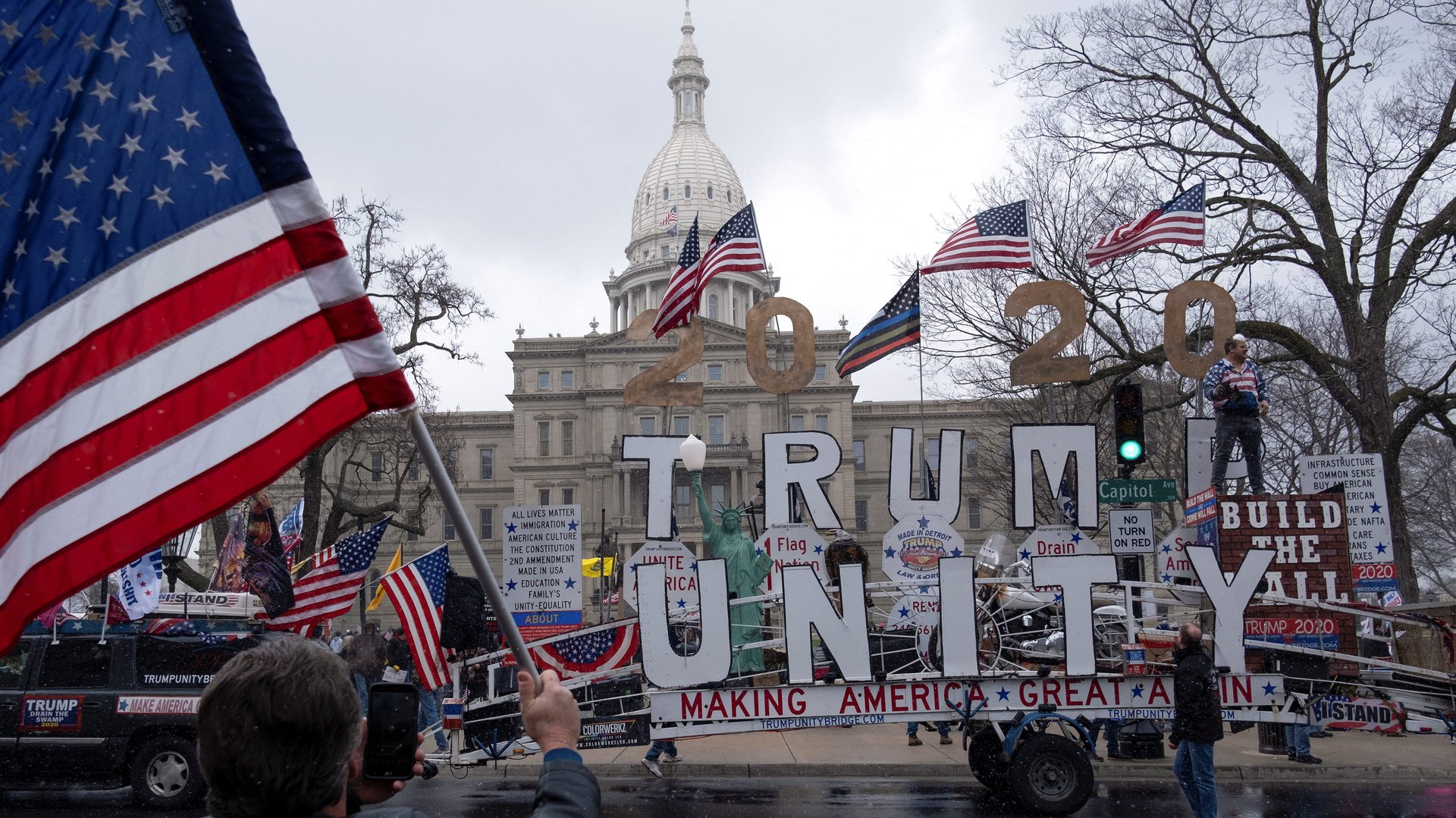Dodging Trump’s latest bullet won’t take Indians out of US immigration’s firing line
Indians in Donald Trump’s US are staring at problems far bigger than his recent immigration move.


Indians in Donald Trump’s US are staring at problems far bigger than his recent immigration move.
On Tuesday (April 21), the US president said that in the wake of the coronavirus crisis, he plans to suspend for 60 days the immigration process for people seeking permanent residency.
He later signed a proclamation clarifying that the rule does not apply to citizens or lawful permanent residents, their spouses and kids under 21, professionals in fields of science and health fighting Covid-19, those applying under the EB-5 immigrant investor program, and a few other categories.
Essentially, the freeze will block only new green card recipients.
“By pausing, we’ll help put unemployed Americans first in line for jobs,” Trump said in his press briefing. “It would be wrong to be replacing them with new immigrant labour flown in from abroad.”
For now, though, the non-immigrant H-1B visas, most of which go to Indians every year, are untouched. Applications for “adjustment of status,” the main route of permanent residency for employment-based immigrants in the US, including H-1B holders, remain unaffected, according to Rebecca Bernhard, partner at the international law firm Dorsey & Whitney.
Still, that doesn’t ease the stress.
The golden visa conundrum
Take the EB-5 visas, a favourite of rich Indians, for instance. Trump’s recent pronouncement does not affect this category which assures a faster route for those able to invest $900,000 in the US.
Yet, the visa has already been made more expensive by $50,000 since April 1 due to additional taxation by the government of India. The waiting time in this category—10,000 visas every year with country caps of 700 each—has been pushed to five years for Indians.
Moreover, since Trump’s focus is on job creation for Americans, experts recommend that EB-5 seekers look to create 10 such full-time positions to improve their chances. “While there are no guarantees, an immigration pathway that creates so many American jobs may be reviewed,” law firm Davies & Associates shared in an email.
Who’s next?
Meanwhile, although there is no change in H-1B yet, Trump’s America-first approach has left many anxious in the past.
“The part about protecting jobs for GREAT Americans is what is causing us to question the future of the H-1B programme,” said Poorvi Chothani, managing partner at LawQuest.
By various estimates, there are between 85,000 and 375,000 Indian nationals working in the US on H-1B. Stopping their workflow will have a devastating impact on Indian IT companies, experts say. Eventually, the US stands to lose, too.
Still, the Trump administration has pushed the narrative that the temporary work visa, which lets foreign nationals live and work in the US for up to six years, is stealing jobs from US citizens. Authorities have been weighing down H-1B employers with paperwork and rejections since 2017.
Coronavirus is only the latest snag. “With travel bans in place and US consulates and embassies not providing immigration services, employment-based immigration into the US has already been largely suspended,” said Richard Burke, CEO of immigration firm Envoy Global.
Experts now suspect that as downsizing gains ground, some employers may even choose not to avail the visas they have already secured in this year’s H-1B lottery.